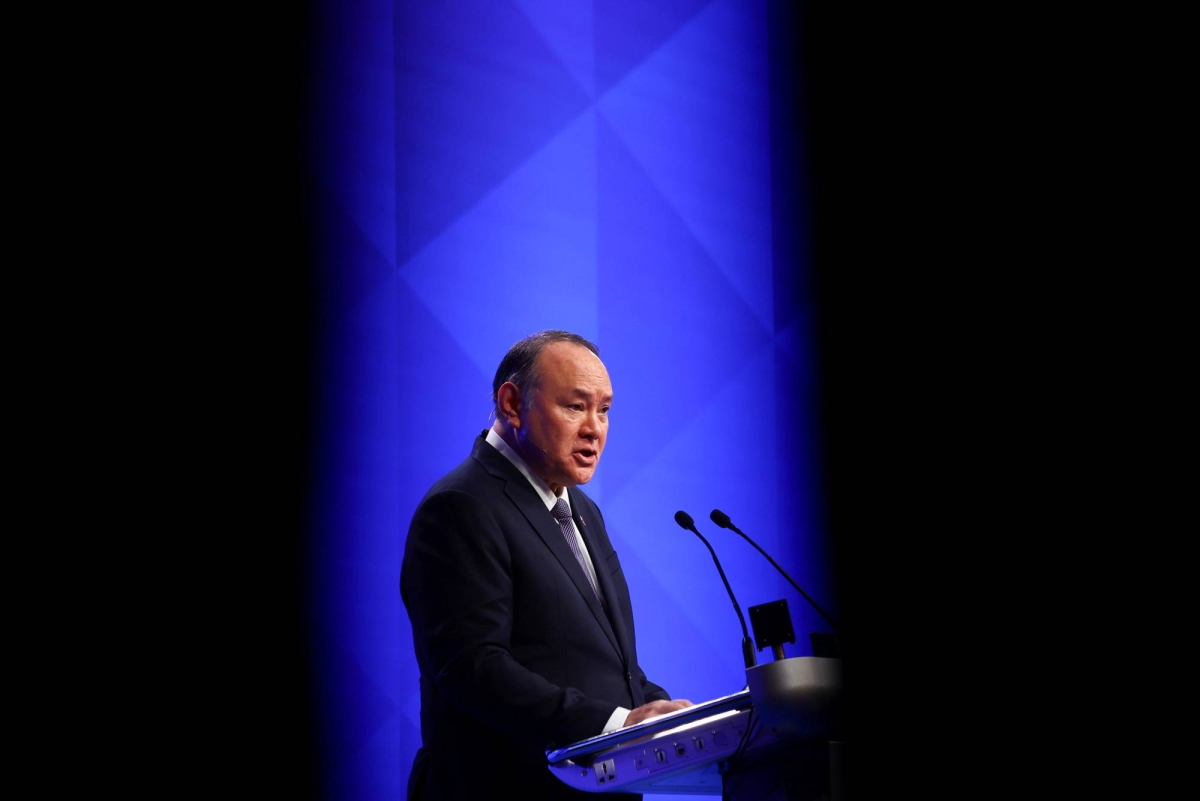In the complex geopolitical landscape of Southeast Asia, the Philippines has found itself at a crossroads, navigating the delicate balance of power between the United States and China. Recent discussions around the deployment of U.S. missile systems on Filipino soil have sparked speculation and raised eyebrows across the region. While Manila has chosen to adopt a stance of strategic ambiguity on this issue, one thing remains crystal clear – the Philippines is resolute in its commitment to bolstering its own defense capabilities.
Amidst the uncertainties and strategic maneuvering, Philippine Defense Secretary Gilberto Teodoro has shed light on the country’s nuanced approach. Teodoro’s mention of “strategic ambiguity” mirrors tactics employed by other major players in international relations, such as the United States with Taiwan and France with its nuclear strategy. This deliberate ambiguity serves a dual purpose: it allows for flexibility in decision-making while also sending a subtle message to potential adversaries.
Strategic ambiguity, a tool of diplomacy and defense, enables nations to maintain a level of unpredictability that can be advantageous in a region fraught with tensions and rivalries.
The dynamics at play in the Asia-Pacific region underscore the importance of nuanced foreign policy decisions. The Philippines’ strategic positioning not only reflects its own national interests but also signals its willingness to adapt to the evolving security landscape. By securing funds for the acquisition of midrange missiles, Manila is taking proactive steps to enhance its defense capabilities independently.
Investing in indigenous defense capabilities not only strengthens a nation’s security posture but also asserts its autonomy in decision-making and strategic planning.
The implications of the Philippines’ defense strategy extend beyond its borders. The region is witnessing a subtle yet significant shift in power dynamics, as countries recalibrate their allegiances and fortify their military capabilities. The U.S.-China rivalry looms large over Southeast Asia, prompting nations like the Philippines to tread carefully and make calculated moves to safeguard their interests.
Expert analysis of the situation highlights the delicate dance of diplomacy and deterrence that characterizes the Philippines’ approach. By leveraging strategic ambiguity, Manila aims to maintain a delicate equilibrium, signaling strength without escalating tensions unnecessarily. This nuanced diplomacy underscores the complexities of modern statecraft in a region teeming with competing interests and historical animosities.
The Philippines’ strategic decisions in the realm of defense reverberate beyond its immediate surroundings, influencing regional security dynamics and shaping the calculus of neighboring nations.
As the geopolitical landscape continues to evolve, the Philippines finds itself at a crucial juncture, where every decision carries weight and implications. The country’s strategic foresight and nuanced approach to defense procurement set the stage for a broader reevaluation of power dynamics in the Asia-Pacific region. By asserting its autonomy and bolstering its defense capabilities, the Philippines asserts its presence on the global stage and reaffirms its commitment to safeguarding its national interests.
In a world characterized by uncertainty and rapid change, the Philippines’ strategic ambiguity serves as a reminder of the complexities of international relations and the importance of strategic foresight. As the country navigates the intricate web of alliances and rivalries, its decisions reverberate far beyond its shores, shaping the contours of regional security and influencing the strategic calculus of major players in the Asia-Pacific theater.
The evolving landscape of geopolitical competition underscores the need for nations to adapt, innovate, and assert their interests in a rapidly changing world. The Philippines’ proactive stance on defense acquisitions and strategic positioning highlights its commitment to navigating this challenging terrain with caution and foresight. As the global balance of power continues to shift, the Philippines stands poised to play a pivotal role in shaping the future of the Asia-Pacific region and beyond.









Leave feedback about this